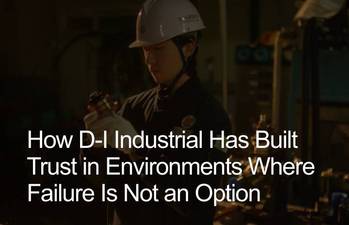Energy Storage and New Fuels Work Together as One on Vessels
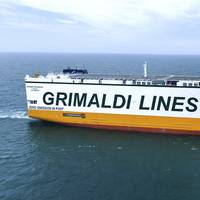
There’s an obvious fuel saving advantage, but partnering energy storage systems with new fuels brings other advantages too.There’s a new generation of vessels emerging which is exemplified by Grimaldi’s PCTC Grande Shanghai, claimed to reduce fuel consumption by 50% compared to previous-generation car carriers, and the NCL Vestland, a container feeder vessel similarly claimed to reduce energy consumption per TEU per nautical mile by 63%.What these vessels have in common is a propulsion system that combines energy storage systems and new fuels.As Henrik Helgesen…
Watertight Hatch Cover Design from Lemissoler Receives ABS Approval

ABS has granted Approval in Principle (AIP) to Lemissoler Corporate Management Ltd. for its watertight hatch cover design for bulk carriers.The design improves hatch cover water tightness through an innovative seal arrangement, features an enclosed deck configuration that enhances crew protection from weather, reduces deck maintenance, and increases cargo capacity.ABS carried out design reviews following the class requirements, assessing the structural plan, finite element strength analysis (FEM)…
ABS Certifies Electric Propulsion Solution from Korean Shipbuilders
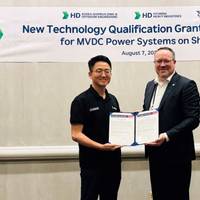
ABS has issued a New Technology Qualification certificate to HD Korea Shipbuilding & Offshore Engineering (HD KSOE) and HD Hyundai Heavy Industries (HD HHI) for their next-generation electric propulsion solution - the Medium Voltage Direct Current (MVDC) power system for ships.The Breakerless-MVDC Power System builds on HD Hyundai’s modular propulsion drive system and is the first in the world to receive an ABS NTQ certificate, indicating the technology’s feasibility and maturity…
DNV Qualifies Subtera’s CUI Detection Tool
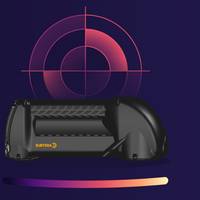
DNV has completed the technology qualification (TQ) of Subtera’s passive terahertz sensor technology designed to detect corrosion under insulation (CUI) and the trapped moisture that causes it, a pervasive challenge in industrial plants.CUI is a leading cause of asset failure in industries such as oil and gas and chemicals. It has contributed to over 20% of major oil and gas accidents in the EU in the past 35 years, posing significant safety, environmental, and financial risks.Developed over a decade by Subtera…
ClassNK Greenlights SHI’s Autonomous Navigation Assistance System
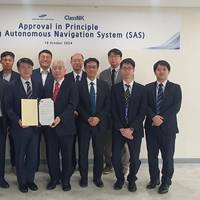
ClassNK has issued an Approval in Principle (AiP) for Autonomous Navigation Assistance System ‘SAS’ developed by Samsung Heavy Industries (SHI).Samsung Autonomous Navigation Assistance System (SAS) is partially Autonomous Navigation System (ANS) including the functions of situational awareness through sensor fusion and electronic navigational chart information, collision and grounding risk assessment, collision and grounding avoidance.ClassNK is involved in various demonstration projects and continuously works to develop necessary safety standards…
LR Partners with Amogy and RotoBoost to Slash Maritime Emissions
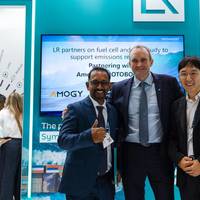
Classification society Lloyd’s Register (LR) is collaborating with Amogy and RotoBoost in a study aimed at reducing emissions in the maritime industry. The joint development project (JDP) will assess the potential of advanced technologies such as hydrogen fuel cells, ammonia-to-power systems, and pre-combustion Carbon Dioxide Capture Storage (CCS) systems from technical, financial, and regulatory perspectives.This partnership marks a significant step toward evaluating how these…
ABS and HD Hyundai Heavy Industries Sign JDP to Advance 3D Printing
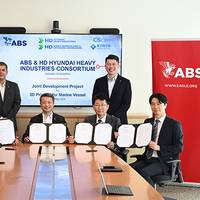
ABS and representatives from an HD Hyundai Heavy Industries (HHI) consortium signed a joint development agreement (JDP) that paves the way for the onboard manufacture of repair parts.Using a digital library for the design process and 3D printing, also known as additive manufacturing (AM), the consortium aims to support rapid maintenance, repair and operations (MRO) on sailing merchant vessels focused on metallic materials. Project partners include ABS; HHI; CScam, 3D printer manufacturer…
Partners Explore Medium-voltage Direct Current Power Systems on Ships
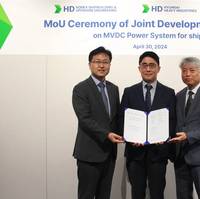
Classification society ABS announced it is partnering with South Korean shipbuilders HD Korea Shipbuilding & Offshore Engineering Co., Ltd. (HD KSOE) and HD Hyundai Heavy Industries, Co., Ltd. (HHI) to explore the technical feasibility for medium-voltage direct current (MVDC) power systems on ships.Under a newly signed memorandum of understanding (MOU), the partners will collaborate on design assessment, new technology qualification as well as the development of rule guidance to provide clear directives on technical requirements…
Amogy Presented with New Technology Qualification Letter by ABS
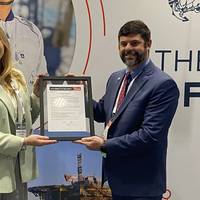
Ammonia-to-power solutions company Amogy has been issued a new technology qualification (NTQ) letter for concept design verification by classification society the American Bureau of Shipping (ABS).Amogy has developed an innovative ammonia-to-electrical power system that splits, or “cracks,” liquid ammonia into its base elements of hydrogen and nitrogen, which then funnels the hydrogen into a fuel cell, generating high-performance power.The ABS NTQ services offer guidance on early adoption and efficient implementation of new technologies…
DNV Awards Certificates for Fortescue’s Dual-fueled Ammonia-powered Vessel
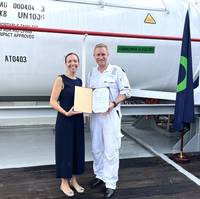
Classification society DNV presented Australian green technology, energy and metals company Fortescue with class and statutory certificates for its dual-fueled ammonia-powered vessel Green Pioneer. This marked the culmination of a project that began in 2021, when DNV was engaged by Fortescue to work on the feasibility study and 'Fuel ready (Ammonia)' notation for the vessel’s conversion. DNV's Technology Qualification process provided the framework for the qualification and assurance of the engine modifications, where industry rules were yet to be developed.
APL’s Fluid Swivel Technology Certified by DNV
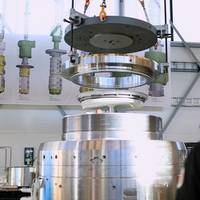
NOV’s APL group has received technology qualification program (TQP) certification from DNV for its largest swivel. The swivel TQP developed by APL is claimed to be a game-changer for fluid swivels for oil, gas, e-fuels, and CO2 transfer.The TQP was developed to meet the increasing demand for larger swivel designs that can withstand higher pressures and temperatures. Large swivel stacks are used for floating production vessels to connect the processing system on the weathervaning vessel with the geostationary subsea installation.“Without the swivel stack…
Amogy Issued Feasibility Statement by Lloyd’s Register
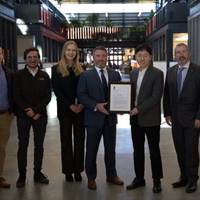
Ammonia power solutions company Amogy informs it has been awarded a feasibility statement by classification society Lloyd’s Register (LR).Amogy has developed an ammonia-to-electrical power system that splits, or “cracks,” liquid ammonia into its base elements of hydrogen and nitrogen, which then funnels the hydrogen into a fuel cell, generating power at five times the energy density of lithium batteries.The feasibility statement from LR serves as the official approval of Amogy’s Technology Qualification Plan (TQP)…
Amogy Brings Ammonia Into the Mix
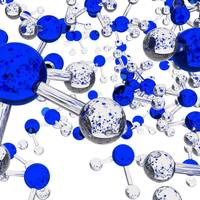
Ammonia is one of several renewable fuels seen as an option to help the maritime industry decarbonize.One of the companies working to unlock the fuel’s potential is Brooklyn, N.Y. based Amogy, developer of an onboard system that feeds liquid ammonia through a cracking process to create hydrogen on demand for power generation via fuel cell—without carbon emissions.Having already demonstrated its technology on an aerial drone, tractor and semi-truck, Amogy is currently working to…
Amogy Completes Technology Verification Phase with LR
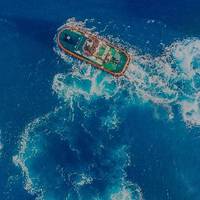
Ammonia power solutions company Amogy on Wednesday announced it has completed its Technology Verification phase with classification society Lloyd’s Register.This includes the assessment and certification of novel technologies through its Technology Qualification process where novel technologies are evaluated in terms of their technology maturity and associated risks. The first phase was undertaken in 2022, during which the technology readiness level of its core components and system interfaces were identified and assessed.
SWITCH Maritime Raises $10 Million to Grow Its Green Ferry Fleet
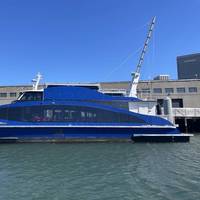
SWITCH Maritime announced plans to grow its U.S. fleet of zero-emission ferries following the completion of a $10 million in a Series A round led by Nexus Development Capital.Founded in 2018, SWITCH’s mission is to enable private and public municipal ferry operators to more easily replace their carbon-intensive, diesel-powered fleets while reducing operating and fueling costs over the lifetime of their vessels.The fundraise comes on the back of the completion of its flagship zero-emission vessel…
ABS Publishes Requirements for Liquid Hydrogen Carriers
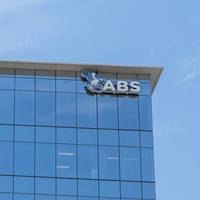
The transportation of hydrogen, a key fuel of the energy transition in maritime, is another step closer to supporting projected market demands thanks to newly published industry-leading requirements from ABS.The ABS Requirements for Liquefied Hydrogen Carriers address safety and technical standards for vessels carrying liquefied hydrogen, expanding on the corresponding IMO Resolution MSC.420(97) that was adopted in November 2016. The ABS publication provides further support on criteria such as risk assessment…
ClassNK Contributes to Social Implementation of MASS
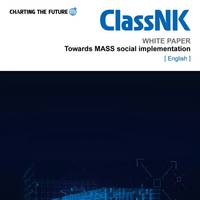
ClassNK is taking a leading role in the implementation of safe and efficient maritime autonomous surface ships (MASS) through a program of research, rule-development, technology trials and certification.While the regulatory framework covering MASS remains a work in progress, it is clear that autonomous ship technologies are already having a transformative effect on shipping.By autonomously executing certain functions that would typically be performed by crew – especially tasks…
ABS Qualifying Subsea Ammonia Storage
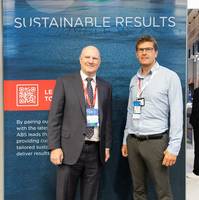
ABS is providing new technology qualification services for subsea ammonia storage technology from NOV Subsea Production Systems.The 200-cubic-meter prototype subsea storage unit is en route to NOV’s testing facility in Norway where large-scale product validation tests are planned for later this summer.The subsea storage system is part of a Joint Development Project that includes ABS, NOV Subsea Production Systems, Equinor, The Research Council of Norway and The Net Zero Technology…
ABS Verifies Non-flammable Blue G Battery System Design
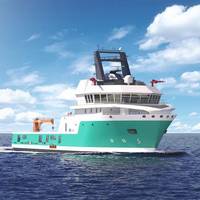
Classification society ABS announced it has issued New Technology Qualification (NTQ) for non-flammable battery technology for use at sea.Called Blue G, the vanadium redox flow battery system from Gennal Engineering PTE LTD is now planned to move into prototype testing later this year.The Blue G battery is comprised of a water-based electrolyte solution, storage tank, stack cell and regulating pump. The process of charging and discharging energy does not produce excess heat –…
BV, ThorCon Developing Molten Salt Nuclear Power Barge
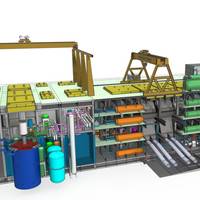
Testing, inspection and certification specialist Bureau Veritas and nuclear power technology developer ThorCon have entered an agreement for the technology qualification and the subsequent development of a 500-megawatt (MW) molten salt nuclear power barge for operations in Indonesia.The concept developed by ThorCon is a molten salt fission reactor that operates at low pressure and uses liquid fuel. The liquid fuel enables much higher operating temperatures, leading to greater…
Vessel Autonomy in Offshore Wind: Scaling up Ops via Tech, Regulation
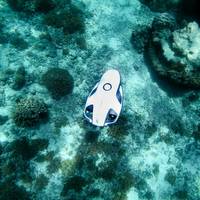
Autonomous technology is adding value to the offshore wind (OSW) industry, its supply chains and government policy with the potential to deliver benefits such as increased operational efficiency and safety, and reductions in human error and operational costs. With the unique needs for wind leases and their relative close proximity to shore, a wider group of systems and technologies can be deployed.A developing regulatory landscapeAutonomous technology is the result of rapid advancements in sensors and imaging, vessel connectivity, machine learning, and more.
Amogy Ammonia-to-power System Receives LR Approval in Principle
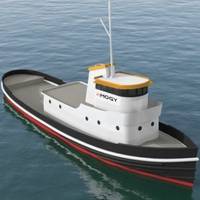
Brooklyn, N.Y.-based Amogy said its ammonia-to-power system has received approval in principle (AIP) from classification society Lloyd’s Register, marking a key step toward the zero-emission solution's commercial use in maritime vessels. The system cracks liquid ammonia to hydrogen, which is then used to generate electrical power through proton-exchange membrane (PEM) fuel cells.With the AIP in hand, Amogy said it will continue the technology qualification and type approval processes…
Sea Machines’ SM300 System On Board Foss Tug Earns ABS Approval
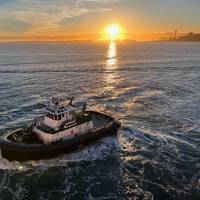
A Foss Maritime harbor tug outfitted with the Sea Machines SM300 autonomy system has been verified by the American Bureau of Shipping (ABS). The tug, Rachael Allen, is deployed in California, where it provides tanker escort and ship assists for Foss’ customers. The vessel will first leverage the Sea Machines’ autonomy system for routine transit and stand-by operations, and then trial remote piloting from a shore-based command center. The SM300 transit autonomy and station keeping…



